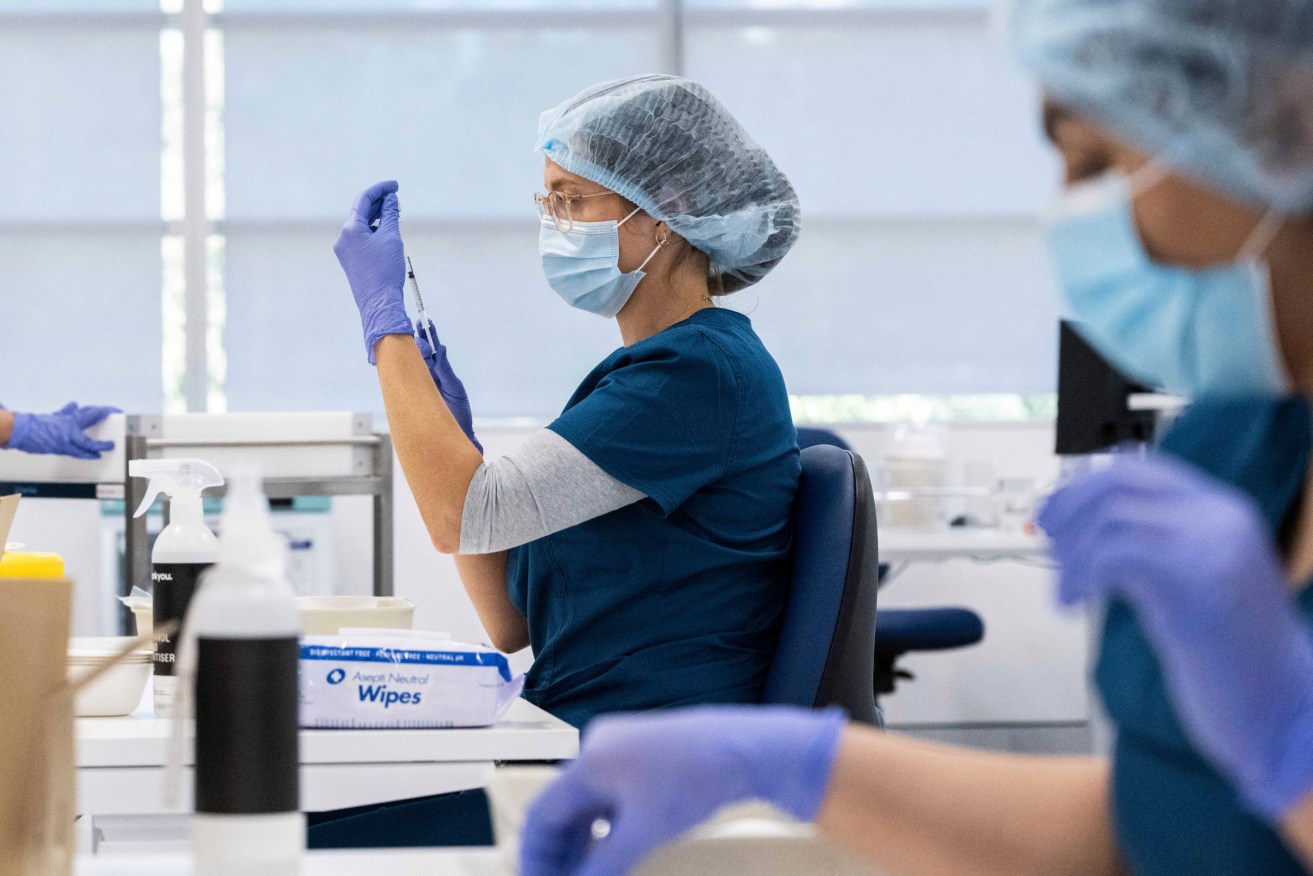Push to manufacture advanced COVID vaccines in Adelaide
A biotech firm says it can start manufacturing advanced mRNA COVID-19 vaccines at a Thebarton facility “within 12 months” with federal government funding, as Commonwealth health authorities negotiate on the proposal.


(James Gourley/Pool Photo via AP)
Biologics contract development and manufacturing organisation BioCina bought a purpose-built development facility in Thebarton last August from pharmaceutical giant Pfizer.
According to BioCina, the facility has the capability to manufacture vaccines which utilise the complex mRNA technology in the Pfizer and Moderna jabs.
BioCina CEO Ian Wisenberg said the plant, which is 4600 square metres in size, was founded by the University of Adelaide and is the “most advanced facility of its kind in Australia”.
“With reasonable financial support from government to add key capabilities and expand capacity, [we] can within months be producing key ‘ingredients’ of mRNA COVID-19 vaccines to address the current global shortage,” Wisenberg said in a statement.
“Within 12 months we will produce end-to-end mRNA vaccines, like the Pfizer jab, giving Australia sovereignty over its supply.
“The facility itself is a gem and the people make it shine.”
Currently, Australia’s only COVID-19 vaccine manufacturing plant is the CSL facility in Melbourne which exclusively produces the AstraZeneca vaccine.
The push from BioCina comes after the federal government last night set aside funds in the federal budget to establish a sovereign manufacturing capability for the mRNA vaccine.
Finance Minister Simon Birmingham said the federal government was open to the Thebarton facility.
“That’s certainly one option for us to establish a mRNA vaccine facility in Australia,” he told ABC Radio this morning.
“We’re committed to doing that to get that capability into our country.”
Birmingham said Premier Steven Marshall and Trade Minister Stephen Patterson have previously discussed the Thebarton manufacturing proposal with him to “highlight the potential of BioCina”.
“Our Health Department has been talking with them as we try and get and secure the contracts for tech transfer of the mRNA vaccine to Australia,” he said.
“I expect they’ll be part of the potential production capability process that we’ll go through.”
The finance minister said the budget outlines two measures aimed at securing technology transfer contracts from Pfizer and then securing a manufacturing contract for a local facility.
South Australian Health and Medical Research Institute Executive Director Professor Steve Wesselingh said the Thebarton facility was further advanced than the CSL manufacturing plant in Melbourne.
“I think we’ve been talking about CSL and lots of other companies around Australia but here in South Australia, we have this hidden gem that could start to make vaccines I think within 9 to 12 months,” he told ABC Radio this morning.
“It actually has the first stage already worked out, and the second stage can easily be developed.
“There wasn’t a lot of detail in the budget, but there was clearly monies put aside in the budget to help production of mRNA vaccines in Australia.”
“This facility in South Australia is some steps ahead of the facility in Melbourne CSL has, so let’s get the federal government to think about this facility in terms of those monies that were allocated in the budget last night.”
Wesselingh said he couldn’t comment on the profits BioCina would make if it was given approval as a manufacturer from the federal government.




